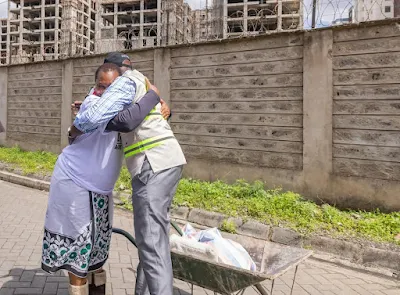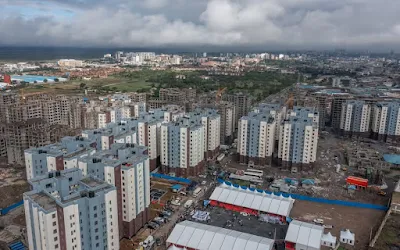Nairobi, Kenya — President William Ruto has hit a major milestone in his affordable housing initiative after handing over more than 1,000 new housing units to residents of Mukuru slums, Nairobi County.
 |
| One of the Beneficiary of affordable housing tightly hugging president Ruto (Photo Courtesy) |
The move, backed by the controversial housing levy, marks a dramatic shift in the lives of slum dwellers—transforming once-dilapidated settlements into dignified, modern homes.
Each unit is fully equipped with essential amenities like clean water, electricity, and gas connections—a stark contrast to the harsh realities of slum life, which for years has meant surviving without basic services like toilets, running water, or reliable power.
This project is more than just housing—it's a political game-changer.
Housing and the 2027 General Election
As the 2027 presidential election looms, President Ruto is expected to face a formidable opposition—possibly even from his estranged former deputy, Rigathi Gachagua. Gachagua has begun positioning himself in the vote-rich Mt. Kenya region, which was instrumental to Ruto’s 2022 victory.
 |
| President Ruto at one of the housing units issued to residents in Mukuru (Photo Courtesy) |
In this high-stakes political landscape, affordable housing is emerging as a flagship campaign issue for the president.
By delivering tangible results like the Mukuru project, Ruto is building more than homes—he’s building trust, loyalty, and possibly, a pathway to reelection.
 |
| An aerial view of the housing development at Mukuru slums (Photo Courtesy) |
Why This Matters
The success of the affordable housing program could serve as proof of delivery for a government battling economic criticism and political pressure.
If replicated nationwide, the housing drive could become Ruto’s signature legacy project—one that resonates deeply with low-income Kenyans and sways undecided voters in 2027.







.jpeg)
0 Comments